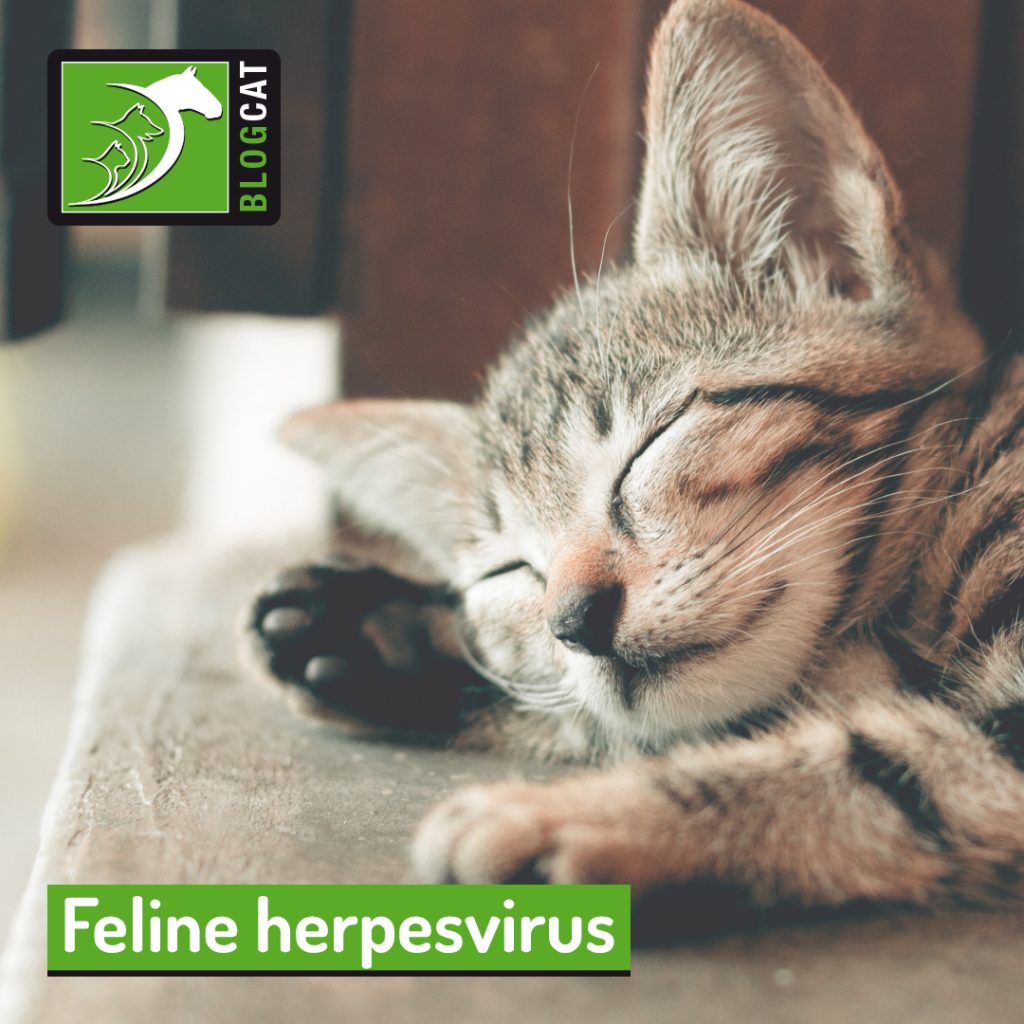
Feline herpesvirus

One of the most common illnesses that can affect your furry friend is feline herpesvirus infection!
Also known as feline viral rhinotracheitis (FVR), this disease is a frequent infection seen in cats, and symptoms vary from mild to more severe.
If you've ever seen your cat with a runny nose, persistent eye discharge or noticed sneezing, especially when he or she was a kitten, it was likely to have been a case of FVR. While most infections are mild, vulnerable animals like unprotected cats, older pets or kittens might suffer from a severe form of the disease.
Learn all about how to keep your cats protected from FVR in our blog post below!
How can my cat get feline herpesvirus?
The feline herpesvirus type 1 exists everywhere and is also highly infectious, meaning it is very easy for your cat to run into it, especially if he or she often goes outside or stays with other cats.
If other cats are shedding the virus (usually through eye, nose or mouth secretions), any contact with them or with items that they have been close to, like beds, bowls or surfaces, is likely to infect your pet quickly. Due to the high prevalence of this virus, many outside cats or pets who live in multicat households can carry and transmit the infection.
Fortunately, feline herpesvirus is exclusive to our domestic cats and other wild feline species, which means that humans and other pet species (like dogs or rabbits) cannot become infected.
What are the signs of feline viral rhinotracheitis?
FVR might take some days to show up in full force after contact with viral particles (either from other cats or from the environment), and you might see the following signs in your cat:
- Runny nose;
- Red, puffy eyelids with secretions that can range from a clear fluid to pus;
- Sneezing;
- Lethargy and fever.
If you spot any of these signs, don't hesitate to talk to your vet! As we've mentioned, many of these infections are not very complicated and treating them is relatively straightforward. However, a proper diagnosis and treatment plan are still needed as many other, more serious diseases can have similar signs.
Veterinary support is vital for our more vulnerable pets, such as kittens, oldies, or cats with other chronic diseases whose immune systems might not work as well. They can suffer from severe consequences of feline herpesvirus infections, particularly when it comes to eye damage, for instance, debilitating ulcers in the cornea.
These cases will often need specific treatment, such as antibiotics for any other infections that may show up or eyedrops to help heal corneal damage.
How can I protect my cat?
The best way to ensure your feline friend can avoid this disease is through a proper vaccination schedule for him or her! These vaccines will also protect your cats against feline calicivirus, which can cause similar respiratory problems.
Vaccinated cats are less likely to catch FVR, and in the event that they do get sick, they will experience a much milder disease course than unvaccinated pets.
It's also important to remember that this vital protection needs to be boosted regularly, so if you think that your cat might be out of date with his or her vaccinations, schedule your appointment with your vet today!
In summary:
- Feline herpesvirus type 1 causes feline rhinotracheitis, a common viral disease that affects the upper airways and eyes of cats;
- Cats can get infected through contact with other cats as well as through viral particles in the environment;
- While it us usually an uncomplicated disease, it can cause severe problems for senior cats, kittens or cats with lowered immunity;
- The best way to protect your feline friends is by vaccination;
- If you notice that your cat is unwell, don't hesitate to talk to your vet.
Would you like to know more about cats? Check our Feline Courses:
Feline courses
Published: 05 Feb 2024
Read the previous article: Is my dog struggling with osteoarthritis?

